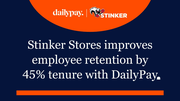Marketing
How to drive retail conversions with AI
Find out how artificial intelligence can play a significant role within all digital marketing strategies.

May 23, 2023 by Eric Schwartz — Managing Director, North America, Scibids
It's normal for consumer spending to pull back after the festive season, as households come to terms with the dollars they've spent from Thanksgiving onwards. Surprisingly, however, retail sales increased by 3% in January this year, and grew by 6.4% when compared to January last year.
Despite this, with the ongoing macroeconomic challenges and slumping consumer confidence, retail sales are only expected to grow 0.5% – a decline of 0.1% when accounting for inflation — across the whole of 2023. This won't be helped by the wave of recent well-publicized layoffs from some of the world's biggest companies either.
Nonetheless, there are solutions, powered by intelligent technology, that can ensure that retail brands are still able to claim a significant share of those retail sales, even though consumers are buying fewer and fewer products and services.
Highly intelligent digital advertising
As consumers are increasingly questioning which non-essential purchases are truly worth their money, retailers should be taking a similarly cautious approach to how they are spending their digital media dollars.
Falling sales — as well as the slow deprecation of various third-party identifiers — will mean retail marketers having to contend with a smaller pool of online engagement data to optimize their media campaigns. As a result, marketers will need to find ways to ensure that their available data is working even harder to maximize performance.
This is where artificial intelligence can play a significant role within all digital marketing strategies.
Retailers can utilize AI to help them to avoid seeing their conversions decline and deliver real return on investment. In particular, they can do this by taking advantage of the advanced capabilities now offered by demand side platforms that enable retail brands to customize their media buying.
AI-powered custom algorithms are able to ingest and combine different data points in real-time, identifying patterns of successful activity based on highly-specific definitions of how quality user engagement should look. This data enables retail brands to inform the design of future campaigns and boost their media buying efficiency.
An example of how this can be achieved is by the AI analyzing campaign impressions against a set of agreed upon KPIs, then using the outcome to produce insights on where the campaign performed best in relation to those objectives.
Without the technology, achieving anywhere close to this would require incredibly tedious manual work, and it would be almost impossible to deliver the desired results at scale. However, customizable AI technology is able to run more calculations in mere seconds than a human could in several lifetimes. What's more, these algorithms can be trained to dynamically optimize against specific business objectives in real-time.
Ultimately, custom algorithms provide the basis for retailers to increase efficiency and effectiveness, limit media waste, and drive conversions at scale. This gives them a competitive advantage, at a time when performant and accountable ad spend is perhaps more important than ever before.
Tech for the present and the future
AI custom bidding algorithms also give retail brands an escape from the 'dirty fuel' of user tracking, as privacy and data regulation continue to gain importance.
Custom algorithms future-proof a brand's strategy, because they rely on the context of ads and the attached metadata, as opposed to utilizing any personally identifiable information. As a result, retailers can scale back on their reliance on third-party data in response to the upcoming deprecation of third-party cookies, and the fading away of other trackers and identifiers.
These developments, combined with the aforementioned inflationary pressure and low consumer confidence, means that this will be a very turbulent year in retail. But thanks to AI, retailers can still stand head and shoulders above the competition, achieve real ROI, and ensure that conversions don't take a hit.
By making use of privacy-compliant metadata, custom algorithms can reduce the impact of less online consumer engagement data being available to retailers. Directed toward business-specific ad decisioning, these algorithms drastically improve efficiency, increase viewable reach, while also making sure that media waste is reduced; only serving ads to the consumers actually most likely to convert.
As retail brands navigate this challenging retail landscape, those who utilize AI will have the answers to overcoming any obstacles now and long into the future.
 ChatGPT
ChatGPT Grok
Grok Perplexity
Perplexity Claude
Claude




